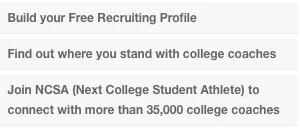First PSU Report Shows Evidence of Culture Changes
George Mitchell, selected by the NCAA as the Athletics Integrity Monitor for Penn State during the term of the university’s sanctions, has published his first quarterly report of the progress PSU has made in implanting the Athletics Integrity Agreement signed this August. The report is very positive, as Penn State has met or is on track to meet all of its obligations under the agreement so far.
But the buzzword surrounding Penn State and the Sandusky scandal has been culture. The impact of the sanctions and corrective actions on the culture of Penn State and the university’s relationship to its football team will be the most closely watched area during PSU’s five years of probation.
The first report has a couple of encouraging signs though. Both are little things, but show evidence of a general commitment by the university to move forward and some specific actions by the football program.
First, at a Faculty Senate meeting attended by Mitchell and his staff, a resolution opposing the Freeh report’s findings and recommendations was debated but ultimately defeated. Mitchell’s report talks about a small minority of dissenting voices. In this case they were heard but the faculty leadership ultimately decided not to heed them. Both discussing opposing views and committing to moving forward are positive steps.
Second, the football program has taken a number of steps to be more open, accessible, and integrated into the athletic department:
Football head coach Bill O’Brien has embraced the University’s efforts to meet its obligations under the Consent Decree and AIA. Several other Penn State head coaches have praised his leadership in permitting a reduction in the football team’s roster by ten players to open slots for men to compete in other sports. Coach O’Brien agreed to open the Lasch Building, which previously had been reserved for use by the football team only, to use by other varsity programs, and he made time previously set aside for the football team available for other sports in Holuba Hall. He also regularly attends head coaches’ meetings with other coaches and administrators, and he has attended several meetings of the Faculty Senate Committee on Intercollegiate Athletics, including one held during his first week on campus.
As much as this is positive news, it also reveals one of the paradoxes in trying to change the culture surrounding football at Penn State. Much of that change is dependent on the head football coach and how enthusiastically he embraces the changes.


